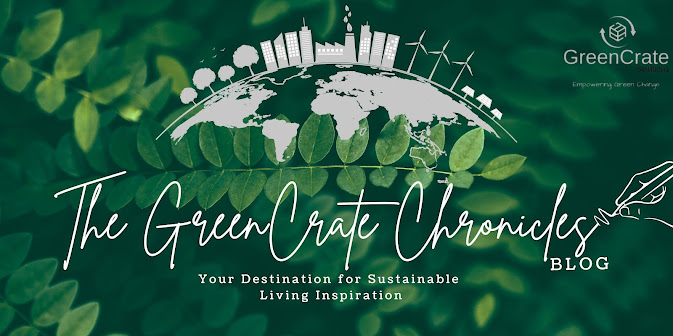#GenerationRestoration: The Urgency of Reversing Climate Change
In the face of an escalating climate crisis, the concept of #GenerationRestoration has emerged as a rallying cry for our generation to take decisive action in reversing global warming and climate change. As the only generation with the power and responsibility to make a significant impact, it is crucial to understand the global human impact on the planet; the urgency of our actions and the statistics that underscore the critical need for immediate intervention.
The Global Human Impact on the Planet
Human activities, particularly the burning of fossil fuels, deforestation and unsustainable agricultural practices have significantly contributed to the rise in greenhouse gas emissions; leading to global warming and climate change. The unchecked exploitation of natural resources and the release of pollutants have accelerated environmental degradation worldwide.Greenhouse Gas Emissions
Global greenhouse gas emissions have been steadily increasing since the Industrial Revolution. In 2019 the total global greenhouse gas emissions reached a record high of 59.1 gigatons of carbon dioxide equivalent (GtCO2e), with the energy sector accounting for the largest share at 73.2% (43.3 GtCO2e).- Source: UNEP Emissions Gap Report 2020
Fossil Fuel Consumption
The global consumption of fossil fuels such as coal, oil and natural gas has been a major driver of greenhouse gas emissions. In 2019 global primary energy consumption from fossil fuels reached 11,718 million tonnes of oil equivalent (Mtoe); with oil accounting for the largest share at 33.1%.- Source: BP Statistical Review of World Energy 2020
Deforestation and Land-Use Change
Deforestation and land-use change have been significant contributors to global greenhouse gas emissions. Between 2015 and 2020 the world lost an average of 10 million hectares of forest per year; with the highest rates of deforestation occurring in South America and Africa.- Source: FAO Global Forest Resources Assessment 2020
Plastic Pollution
Plastic pollution has become a global environmental crisis; with an estimated 8 million tons of plastic waste entering the world's oceans each year. The production of plastic has increased exponentially, from 2 million tons in 1950 to 368 million tons in 2019.- Source: IUCN Issues Brief: Marine Plastic Pollution
The Urgency to Reverse Global Climate Change
The urgency to reverse global climate change is underscored by the scientific consensus that human-induced global warming is escalating at an alarming rate. The Intergovernmental Panel on Climate Change (IPCC) warns that without immediate and drastic action, the world is on track to exceed critical temperature thresholds; leading to irreversible damage. The window of opportunity to mitigate these effects is narrowing rapidly; demanding swift and decisive measures to curb emissions and transition to sustainable practices.Global Temperature Rise
Global surface temperatures have already increased by 1.1°C (2°F) since the late 19th century, with the last decade (2011-2020) being the warmest on record. The IPCC projects that unless deep reductions in greenhouse gas emissions occur in the coming decades, global warming is likely to reach 1.5°C between 2021 and 2040.- Source: IPCC Sixth Assessment Report (AR6), 2021
Sea Level Rise
Global mean sea level has risen by about 20 cm (8 inches) since 1900, with the rate of rise accelerating in recent decades due to the melting of glaciers and ice sheets and the expansion of warmer ocean water. The IPCC projects that global mean sea level could rise by 28-55 cm by 2100 under a low emissions scenario and by 63-101 cm under a high emissions scenario.- Source: IPCC AR6, 2021
Extreme Weather Events
The frequency and intensity of extreme weather events, such as heatwaves, droughts, floods and hurricanes have increased due to climate change. In 2020, there were 30 weather and climate disaster events in the United States alone; with losses exceeding $1 billion each.- Source: NOAA National Centers for Environmental Information (NCEI), 2021
Global Statistics and Projections
- Renewable Energy: Renewable energy sources, such as solar, wind and hydropower have shown significant potential in reducing greenhouse gas emissions and mitigating climate change. In 2020 renewable energy accounted for 29% of global electricity generation; with solar and wind power experiencing the fastest growth.
- Source: International Energy Agency (IEA), 2021
- Electric Vehicles: The adoption of electric vehicles (EVs) has been steadily increasing as a means of reducing transportation-related emissions. In 2020 global EV sales reached 3.1 million units; a 43% increase from 2019, with China and Europe leading the market.
- Source: IEA Global EV Outlook 2021
- Reforestation and Afforestation: Nature-based solutions, such as reforestation and afforestation have the potential to absorb significant amounts of carbon dioxide from the atmosphere. The Bonn Challenge, a global effort to restore 350 million hectares of degraded and deforested landscapes by 2030, has been endorsed by 61 countries and the European Union.
- Source: IUCN Bonn Challenge Progress Report 2021
- Carbon Pricing: Carbon pricing through mechanisms such as emissions trading systems and carbon taxes has been implemented by various countries and regions as a means of incentivizing emissions reductions. As of 2021 64 carbon pricing initiatives have been implemented or are scheduled for implementation; covering 21.5% of global greenhouse gas emissions.
- Source: World Bank State and Trends of Carbon Pricing 2021
- Climate Finance: Mobilizing climate finance is crucial for supporting mitigation and adaptation efforts in developing countries. In 2019 the total climate finance flows reached $632 billion; with public climate finance accounting for $275 billion and private climate finance accounting for $357 billion.
- Source: OECD Climate Finance Provided and Mobilised by Developed Countries 2013-2019


.jpeg)
.jpeg)



Comments
Post a Comment